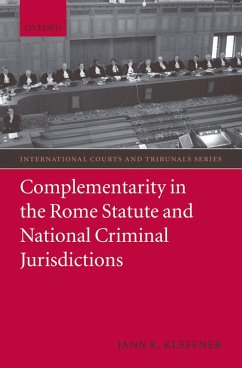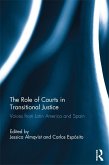This book provides an in depth-examination of the principle of complementarity in the Rome Statute of the International Criminal Court and the implications of that principle for the suppression of genocide, crimes against humanity and war crimes on the domestic level. The book is set against the general background of the suppression of these crimes on the domestic level, its potential and pitfalls. It traces the evolution of complementarity and provides a critical and comprehensive analysis of the provisions in the Rome Statute and the Rules of Procedure and Evidence relevant to complementarity. In so doing, it addresses both substantive and procedural aspects of admissibility, while taking account of the early practice of the ICC. Further attention is devoted to the question whether and to what extent the Rome Statute imposes on States Parties an obligation to investigate and prosecute core crimes domestically. Finally, the book examines the potential of the complementary regime to function as a catalyst for States to conduct domestic criminal proceedings vis-à-vis core crimes.
Dieser Download kann aus rechtlichen Gründen nur mit Rechnungsadresse in A, B, BG, CY, CZ, D, DK, EW, E, FIN, F, GR, HR, H, IRL, I, LT, L, LR, M, NL, PL, P, R, S, SLO, SK ausgeliefert werden.









